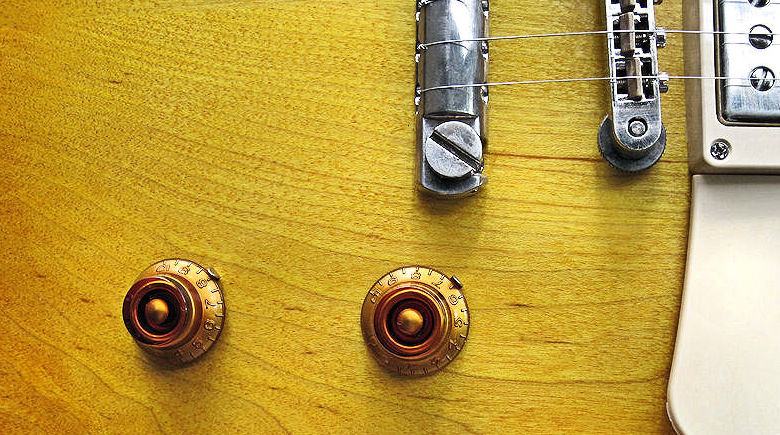How to clean your guitar properly without trashing the finish
There's much debate about how to polish a guitar and whether you should do it at all. So what should you do?

Deciding how to clean your guitar without wrecking the finish can be a scary process, especially if you have a vintage guitar or one that has been aged or 'relic-ed.'
The problem is two-fold. Firstly, you have to clean it. Sweat, oil, dirt, hell even blood if your a hardcore shredder, builds up on the body of the guitar, in the frets, everywhere. For this article, however, we're going to focus on the body.
If you don't clean the body of your guitar, all that dirt and sweat will build up over time and cause a nasty film to form over your lovely finish. Worse, sweat is corrosive, and sweat with a low pH (high acid content) is particularly nasty to guitar finishes. So not cleaning is not an option.
To polish or not to polish?
Polishing is a different matter entirely. Sure there are a ton of polishes on the market which claim to make your beloved axe all shiny and new without damaging it. But guess what? They don't all work as well as they say they do, and can have a detrimental effect on the finish of your guitar.
For example, the nitro-cellulose and lacquer finish used on vintage guitars and those which have been aged cracks naturally. Polishing it can cause polish to seep through the cracks. Will it damage the wood beneath? The jury's out, but would you take the chance?
At the very least, stay away from products that contain solvents and petrochemicals, and if you have a nitro-cellulose finish, we'd stay away from polish altogether.
If you have a newish guitar with a modern gloss finish (never polish a satin finish), a good polish probably won't do any harm, however. You can read more about different polishes here
How to clean your guitar
So, what should you use to clean your guitar? A damp cloth is almost as good as anything for the body. Just make sure it's damp, and not wet. And dry it off with a micro-fibre cloth afterwards. If you have rusty saddles or other hardware, try lighter fluid applied with Q-tips (cotton buds if you're in the UK), but try and do it outside, and wear gloves and a mask. The fumes are not good for you.
Don't, please, whatever you do use household cleaning products or furniture polish. A little distilled white vinegar is fine, if you don't mind the smell.
So, there you go. Simpler than you thought. Clean your guitar with a damp cloth, dry it off. And don't worry about polishing it at all.
Photo: Paul Sherman
Recently on Guitar Hive
-
Electric guitar strings - make your next set the best you've ever played
Apr 23, 15 02:06 PM
There are so many different types and brands of electric guitar strings on the market, buying a set can be confusing. Here's how to choose the best set for you. -
The guitar neck – types, profiles, and everything else you wanted to know
Apr 17, 15 02:24 PM
The guitar neck is the most personal part of the instrument. No wonder it comes in so many shapes and types. -
The neck fingerboard radius explained
Apr 15, 15 06:01 AM
The neck fingerboard radius is one of those seemingly complicated features that's really very easy to understand.
On eBay...




New! Comments
Have your say about what you just read! Leave us a comment in the box below.